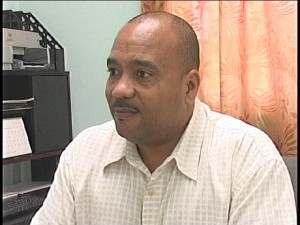National Assessment of country’s response to HIV/AIDS

Dr. Martin Cuellar
There is no shortage of information on the prevention of HIV/AIDS. Unfortunately, there is an abundance of new cases being diagnosed each year. A national assessment is being conducted that seeks to find the short falls and improve the country’s national response as it relates to HIV. It is the third biennial assessment under the United Nations General Assembly Special Session (UNGASS) and will focus on the years 2008 and 2009. Executive Director for the National AIDS Commission says the assessment should bring about more advanced ways of evaluating the statistics, which have been showing improvements in the most recent figures. News Five sat down with Dr. Martin Cuellar today for a more in depth look at what the assessment will entail.
Dr. Martin Cuellar, Executive Director, National AIDS Commission
“We’re looking at our spending, what is the total spending that the country is investing in HIV. We’re looking at our policy situation; what are the policies that we have and the regulations that support HIV or that sometimes can be detracting from what we’re trying to accomplish. We’re also looking at what are called the national indicators and these are just ways that we measure our performance and our three main areas of focus; that is in prevention work, care and treatment and coordination. So we have several measurement tools that we use to assess those performances in those areas. We also want to look at our NGO community and our civil society community; how is their performance fitting in and how well is that meshing with the work being done by the government and the ministries involved with national response. The work started almost a year ago in the planning stage. More serious as of last October/November we got down to the specifics of starting to lay out a plan of attack, consultants were hired in early January and they have been on the ground for the past couple of weeks already starting to—we’ve had a few workshops in which we brought in some of our partners to start gathering information from them and then we also have consultants visiting other partners on a one on one basis especially for getting the full picture of the spending. So that takes a lot of sit down, one on one data collection. So this continues through the month of February into the middle of March when we start compiling the final report. At the end of March, the thirty-first we are committed to submit our report to the United Nations.”
While there is much information to be collected, how exactly will the data be used to improve the country’s HIV/AIDS status, particularly in comparison with other countries in the region? We asked Cuellar what they plan to do when the reports from the assessment are finalized.
Dr. Martin Cuellar, Executive Director, National AIDS Commission
“We plan to use it in our upcoming work plan development in the national response. We certainly plan to use it to look at what is working well and where we can continue current programs or where we need to make changes to some of those current programs. So definitely in planning, investment and then in new ideas that we expect to surface for possible interventions. Right now the commission is engaged in operationalizing its national strategic plan. We have had a strategic plan thanks to the good work of the many members of the response. Over the past seven years that plan has been developed. We are at the point now of taking it to the next level and operationalizing. Once we have that operationalized I think it will be more transparent and more easy for all members of the national response to be very clear on their role, to fulfill those roles and then to have the National Aids Commission bring it all together and seeing an improved output. This exercise that we’re doing this year is happening at a very good time because the results will feed directly into the operaitonlization of that strategic plan and so we will see more clearly what are the latest trends, what are the latest weaknesses and trends. Transferring that into our work plan I think will make this assessment more impacting than in the past.”
Information gathering for the UNGASS assessment will be done with help of consultants, NGO’s, Community Based Organizations and the government.

ts really helpfull and informative , Amazing work darragh ..Way of explanation and pictures presentation is attaractive .